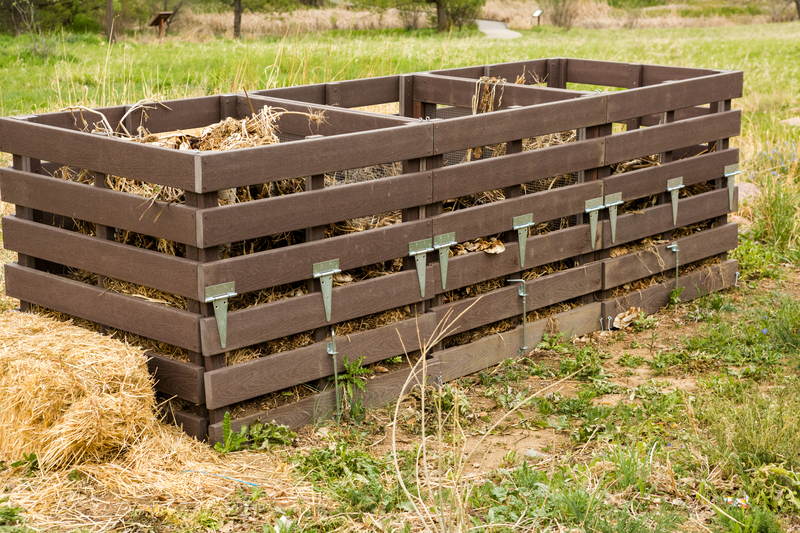Mindful Practices to Reduce Household Waste: A Comprehensive Guide
In today's fast-paced world, household waste accumulation is a growing concern for both the environment and our communities. Practicing mindfulness in our daily habits can significantly reduce household waste, promote sustainability, and contribute to a healthier planet. This guide explores a variety of mindful practices to reduce household waste, offering practical and effective tips for anyone eager to create an eco-friendlier home.

Why Is It Important to Minimize Household Waste?
The average household generates a substantial amount of waste each year, much of which ends up in landfill sites, contributing to pollution, greenhouse gas emissions, and the depletion of natural resources. By reducing household waste, you not only lower your ecological footprint but also save money, improve your health, and inspire others to adopt sustainable habits.
- Conservation of resources: Using less and reusing more preserves raw materials.
- Decreased pollution: Less waste means fewer landfills and less incineration.
- Economic advantages: Cutting down on waste helps save money in the long run.
Understanding Mindful Waste Reduction
Mindful waste reduction isn't just about recycling--it's about being conscious of our consumption choices, daily behavior, and disposal methods. By paying attention to what we buy, use, and throw away, we can drastically reduce household landfill waste and promote responsible living.
Principles of Mindful Waste Minimization
- Awareness: Take stock of the types and quantities of waste produced at home.
- Intention: Make deliberate decisions that prioritize sustainability.
- Consistency: Develop habits that support continuous improvement and eco-conscious living.
Mindful Practices to Reduce Household Waste
Let's explore actionable and effective methods for minimizing household waste using mindfulness. Integrate these sustainable practices into your daily routine for lasting results.
1. Rethink Purchases and Packaging
- Buy in bulk: Purchasing items with minimal packaging reduces single-use plastics and wrappers.
- Choose reusable options: Opt for products in reusable, refillable, or recyclable containers wherever possible.
- Avoid single-use items: Skip disposable utensils, plates, and bottled water in favor of durable alternatives.
- Be mindful of marketing: Many products are over-packaged--select those with eco-friendly packaging or no packaging at all.
2. Meal Planning and Food Waste Management
- Plan meals ahead: Creating a weekly menu helps avoid overbuying and reduces food ending up in the trash.
- Use leftovers creatively: Reinvent surplus food into new meals (for example, turn roasted vegetables into soups or casseroles).
- Compost organic waste: Set aside food scraps for composting instead of throwing them away to landfill.
- Shop with a list: Stick to a grocery list to minimize impulse purchases and food spoilage.
3. Reusable Alternatives to Everyday Items
- Bring your own bags: Always carry reusable shopping bags for groceries and personal items.
- Switch to cloth: Use washable cloth napkins, towels, and shopping sacks in place of paper or plastic.
- Reusable containers: Store food in glass or stainless steel containers and ditch single-use plastic wrap.
- Personal care: Try cloth makeup wipes, menstrual products, and razors for waste-free hygiene.
4. Repair, Repurpose, and Upcycle
- Fix instead of discard: Repair appliances, clothing, and other household items before replacing them.
- Repurpose creatively: Transform glass jars into storage containers, old t-shirts into cleaning rags, or pallets into furniture.
- DIY projects: Embrace do-it-yourself projects to breathe new life into items that might otherwise be discarded.
- Community repair events: Attend local repair cafes or swap meets to fix items and share knowledge.
5. Responsible Recycling
- Sort waste accurately: Separate recyclables, compostables, and landfill trash according to local guidelines.
- Rinse before recycling: Clean items to avoid contamination in recycling bins.
- Know your materials: Not all plastics and packaging are recyclable--check labels or your city's recycling guide.
- Don't wishcycle: Only recycle items accepted in your area to avoid causing processing issues.
6. Eco-Friendly Cleaning and Personal Care
- Make your own cleaners: Natural ingredients like vinegar and baking soda work well and reduce the need for chemical bottles.
- Use concentrated products: Refillable cleaning pods and bars cut down on plastic waste.
- Switch to solid toiletries: Go for bar soap, shampoo bars, and refillable deodorant.
- Minimize microplastics: Avoid products with microbeads or synthetic fabrics that shed fibers.
Advanced Mindful Strategies to Reduce Waste at Home
Beyond everyday changes, consider these advanced techniques to further reduce your household environmental impact and inspire sustainable living in your community.
Install Water Filters and Drink Tap Water
- Eliminate bottled water: Use high-quality filters and reusable bottles to avoid plastic bottle waste.
- Educate family members: Show how tap water can be safe, economical, and eco-friendly.
Green Your Kitchen
- Invest in durable cookware: Glass, stainless steel, and cast iron last for decades and cut down on kitchenware turnover.
- Grow your own food: Even small-scale gardening in pots or window boxes saves packaging and trips to the store.
Energy and Resource Conservation
- Conserve water: Install aerators and fix leaks to prevent waste.
- Reduce electricity use: Turn off devices when not in use, switch to LED bulbs, and unplug chargers.
The Impact of Mindful Waste Reduction on Your Household and Community
Consistently integrating mindful practices to reduce household waste leads to:
- Lower landfill contributions: Each mindful household helps divert vast amounts of trash.
- Financial savings: Buying less and reusing more keeps money in your pocket.
- Improved health: Less exposure to chemicals and processed goods.
- Stronger community: Sharing knowledge and resources fosters neighborly bonds and a culture of sustainability.
Overcoming Common Challenges to Mindful Waste Reduction
Adopting sustainable waste reduction habits can feel overwhelming at first. But with gradual changes and the right mindset, you can make a meaningful difference. Here's how to tackle common obstacles:
- Lack of time: Integrate mindful practices into existing routines rather than adding extra steps.
- Confusion over recycling: Consult local guidelines or resources to clarify what can and can't be recycled.
- Family participation: Educate and involve all household members for shared responsibility and collective impact.
- Product availability: Start with what you can change now, and gradually introduce new sustainable products as they become available.

Frequently Asked Questions About Mindful Household Waste Reduction
How can I start reducing waste if I'm a busy parent?
Start with small, manageable changes like using reusable shopping bags, switching to cloth towels, and planning family meals to cut food waste. Involve your children by making sustainability a family project--let them help sort recycling or DIY upcycling crafts.
Are zero-waste goals realistic for every household?
Reaching "zero-waste" can be difficult, but every step towards less waste counts. Focus on progress, not perfection--start with mindful swaps and build from there.
Does recycling really make a difference?
Yes, proper recycling helps conserve resources and reduce landfill waste--but it should supplement, not replace, efforts to reduce and reuse. Reducing consumption always delivers a bigger impact than only recycling.
Conclusion: The Power of Mindful Practices for a Low-Waste Household
Embracing mindful practices to reduce household waste is more than an environmental gesture--it's a lifestyle shift that benefits your family, your wallet, and the planet. By paying close attention to what you consume, making intentional purchasing choices, and developing consistent waste-reduction habits, you set a positive example for future generations and drive change in your community.
Remember, every mindful step--no matter how small--contributes to a cleaner, healthier world. Start today by picking one or two ideas from this guide, and continue building your sustainable journey. Together, we can make a substantial difference in waste reduction and environmental stewardship.
Ready to Make a Change?
Share this article with friends and family, and inspire your community to join you in adopting mindful waste reduction practices.
For more guides and inspiration on reducing household waste and sustainable living, stay tuned to our blog and subscribe to our newsletter.